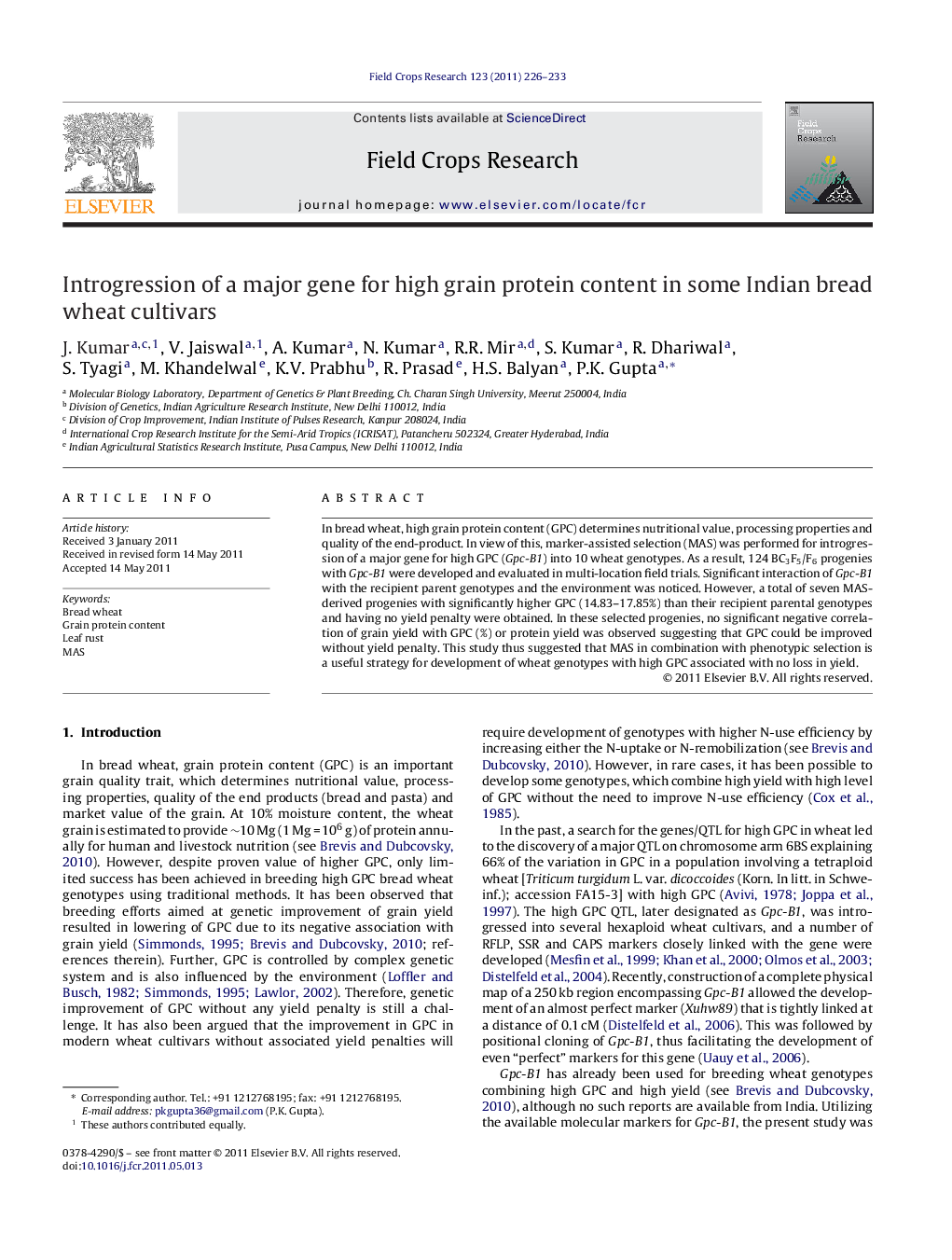| Article ID | Journal | Published Year | Pages | File Type |
|---|---|---|---|---|
| 4510549 | Field Crops Research | 2011 | 8 Pages |
In bread wheat, high grain protein content (GPC) determines nutritional value, processing properties and quality of the end-product. In view of this, marker-assisted selection (MAS) was performed for introgression of a major gene for high GPC (Gpc-B1) into 10 wheat genotypes. As a result, 124 BC3F5/F6 progenies with Gpc-B1 were developed and evaluated in multi-location field trials. Significant interaction of Gpc-B1 with the recipient parent genotypes and the environment was noticed. However, a total of seven MAS-derived progenies with significantly higher GPC (14.83–17.85%) than their recipient parental genotypes and having no yield penalty were obtained. In these selected progenies, no significant negative correlation of grain yield with GPC (%) or protein yield was observed suggesting that GPC could be improved without yield penalty. This study thus suggested that MAS in combination with phenotypic selection is a useful strategy for development of wheat genotypes with high GPC associated with no loss in yield.
► Marker-assisted selection (MAS) was performed for introgression of a major gene for high GPC (Gpc-B1) into 10 Indian wheat genotypes. ► Development of wheat genotypes with high GPC without adverse effect on grain yield could be achieved through marker-assisted backcrossing (MAB) in combination with phenotypic selection. ► Molecular markers linked to economically important traits such as leaf rust resistance could help in pyramiding genes for more than one trait.
